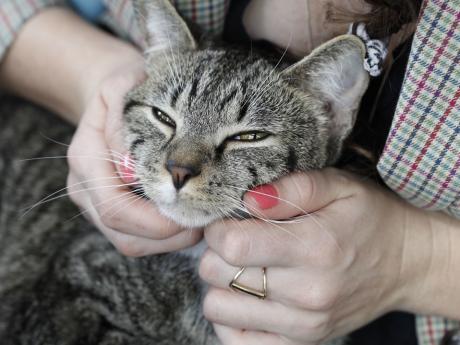
Two pet cats in New York state have tested positive for the coronavirus, marking the first confirmed cases in companion animals in the United States, federal officials said Wednesday.
The cats, which had mild respiratory illnesses and are expected to recover, are thought to have contracted the virus from people in their households or neighbourhoods, the US Department of Agriculture and the federal Centers for Disease Control and Prevention said.
The finding, which comes after positive tests in some tigers and lions at the Bronx Zoo, adds to a small number of confirmed cases of the virus in animals worldwide.
US authorities say that while it appears some animals can get the virus from people, there’s no indication pets are transmitting it to human beings.
“We don’t want people to panic. We don’t want people to be afraid of pets” or to rush to test them en masse, said Dr. Casey Barton Behravesh, a CDC official who works on human-animal health connections.
“There’s no evidence that pets are playing a role in spreading this disease to people.”
Still, the CDC is recommending that people prevent their pets from interacting with people or animals outside their homes by keeping cats indoors and dogs out of dog parks, for instance.
Coronavirus testing for pets isn’t recommended unless an animal has been exposed to a person with COVID-19 and the animal has symptoms of the disease — and tests have ruled out more common possible causes, said Dr Jane Rooney of the USDA.
Veterinarians who think testing is warranted are supposed to contact state officials to decide.
Barton Behravesh said the animal tests are done at veterinary labs and use different chemicals than human tests, which have been in short supply during the crisis.
The American Veterinary Medical Association says pets can stay in homes where a person has COVID-19, so long as the animal can be cared for.
“In this emergency, pets and people each need the support of the other,” the group said in a statement Wednesday.
Scientists are working to understand the potential for transmission to animals in homes, farms and elsewhere.
So far, it doesn’t appear that livestock or poultry are susceptible, Rooney said.
The two cats live in different parts of the state; the USDA and CDC wouldn’t say where specifically.

Faggots and animals get better treatment than human beings.
Tpc
The test used for the cat cannot be used on humans.